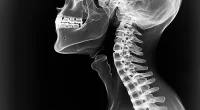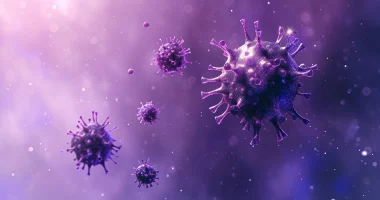Vulvar cancer
What is vulvar cancer?
Vulvar cancer is a cancer pathology in which a malignant tumor affects the female external genitalia (labia, clitoris, posterior commissure, or Bartholin glands).
Vulvar cancer is considered a quite rare pathology in gynecologic oncology. The disease accounts for 4-6% of all cases of cancer and is detected in 2-4 people per 100 thousand population. Women of the older age group (65-75 years) predominate among patients. There are few cases of vulvar cancer in girls and women of reproductive age.
Cancer occurs when malignant transformation of the epithelial cells of the external genital organs. Atypical cells intensively divide, displacing healthy cells, which causes the spread of the pathological process. Malignant tumors are characterized by invasive growth. Penetrating blood and lymphatic vessels, pathological cells can spread in the body, implant in healthy tissues, and provoke the appearance of secondary tumors (metastases).
Types
In 90% of cases in the area of the external genitalia, squamous cell tumors with a high degree of cell differentiation. Based on the features of growth, the following types of malignant neoplasms are distinguished:
- exophytic (growing outward);
- nodular (form localized dense foci in the soft tissues);
- ulcerative (causing a wound to form);
- infiltrative-edematous (accompanied by pronounced inflammatory changes).
Taking into account the degree of prevalence of the malignant process, the following stages of vulvar cancer development are distinguished:
- Null (preinvasive cancer) – malignant cells are localized in the epithelial layer.
- First is tumors up to 2 cm in diameter with invasion up to 1 cm.
- Second is the diameter of the tumor exceeds 2 cm.
- Third – pathological changes affect the surrounding organs, and metastases are found in the regional lymph nodes.
- Fourth (advanced cancer). Involved mucosa of the bladder and rectum, all nearby lymph nodes. Possible metastases in distant organs.
Symptoms
Symptoms of irritation of the mucous membrane of the external genitalia characterize early manifestations of vulvar cancer. A woman may be bothered by “vague” discomfort, itching, or burning sensations. Symptomatology usually intensifies at night. Self-examination may reveal a neoplasm in the form of mamelon, a cauliflower, a subcutaneous nodule, or a wet wound.
As the tumor spreads, painful sensations occur. Particularly intense pain is observed when the clitoris is involved. The formation of an ulcerous defect is accompanied by spurting or bloody discharge. With secondary infection, there may be purulent discharge with an unpleasant odor.
In advanced cases, vulvar cancer is manifested by enlarged inguinal lymph nodes and swelling in the pubic area. Systemic manifestations of advanced cancer are weakness, fatigue, nausea, fever etc.
Reasons
The mechanism of vulvar cancer development is not fully understood. Hormonal changes play a specific role during menopause, affecting the epithelial cell differentiation process.
Predisposing factors are considered to be:
- chronic inflammatory processes in the genital area;
- sexually transmitted infections;
- carrying papillomavirus;
- dystrophic changes of the genital organs (kraurosis, leukoplakia, etc.);
- genital neoplasms;
- overweight;
- diabetes;
- arterial hypertension.
Diagnosis
Vulvar cancer is diagnosed during a comprehensive examination that takes place in several stages:
- Gynecologic examination. Changes in the skin and mucous membranes are detected, and the degree of prevalence of the process and the involvement of internal genital organs are assessed.
- Colposcopy. Pathological foci are studied with the help of a particular device that creates multiple magnification.
- Biopsy. A fragment of tumor tissue is sent for cytological and histological analysis to verify the diagnosis.
- Laboratory tests. General blood tests, tests for oncomarkers, and biochemical tests are performed.
- Ultrasound of the pelvic organs and regional lymph nodes. Provides information about the extent of the cancer process.
If the diagnosis is confirmed, an extended examination is carried out – ultrasound, CT or MRI of internal organs, chest X-ray, which allows to identify metastases.
Vulvar cancer treatment
Oncologic diseases are treated comprehensively using surgical and conservative methods. Therapeutic tactics are personalized for each patient, considering the stage of cancer development, the general condition of the body, and the presence of concomitant diseases.
Conservative treatment
Conservative measures most often complement surgical treatment. In most cases, chemoradiation therapy is performed after surgery to remove the tumor.
Isolated use of conservative methods is indicated in inoperable cases. Treatment is aimed at slowing down the development of the disease and reducing the tumor mass. In some cases, radiotherapy and chemotherapy precede surgery, allowing to reduce the size of the tumor, which creates a background for radical surgery.
Surgical treatment
Organ-preserving surgeries are performed when vulvar cancer is diagnosed at the preinvasive stage. In this case, a wide excision is indicated. In the intervention process, a flap of tissue is removed along with the tumor and submucosal layer.
In stage 2 or 3 a vulvectomy (removal of the external genitalia) with inguinal and iliac lymphadenectomy is performed. In advanced cases, all involved organs (external genitalia, vagina, uterus and appendages, bladder, rectum) are removed.
All these treatment options are available in more than 900 hospitals worldwide (https://doctor.global/results/diseases/vulvar-cancer). For example, radical vulvectomy is performed in 25 clinics across Turkey for an approximate price of $5.2 K (https://doctor.global/results/asia/turkey/all-cities/all-specializations/procedures/radical-vulvectomy).
Prevention
Preventing vulvar cancer in women involves careful health monitoring, regular preventive examinations by a gynecologist, and seeking help at the first signs of the disease. It is worth giving up bad habits and leading an active lifestyle to reduce cancer development risks. Prevention of age-related involutional changes involves hormone replacement therapy and the use of hormonal preparations of local action. Only a gynecologist should prescribe these medications – self-medication can be dangerous!
Rehabilitation after surgical treatment
After surgical treatment, a course of radiation and/or chemotherapy is given. Bands are applied until the wound is completely healed. After discharge, follow-up continues as an outpatient. During the rehabilitation period, it is recommended to carefully observe genital hygiene, limit physical activity, and eat rationally.


